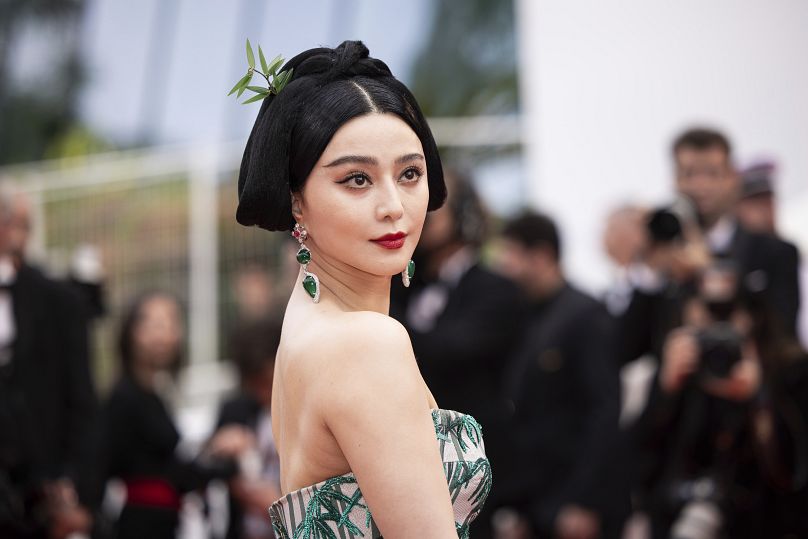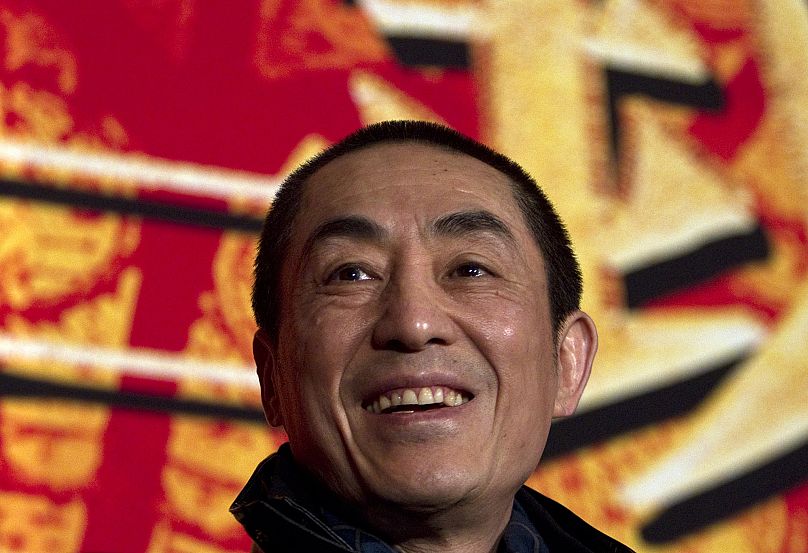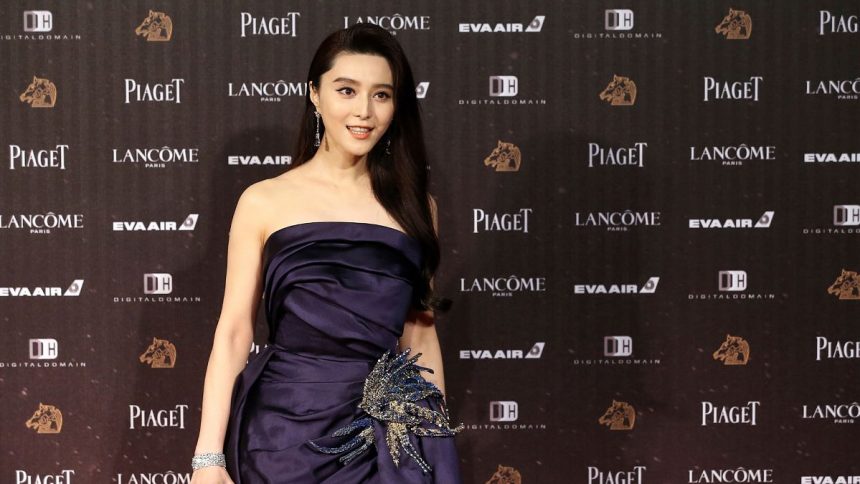Fan Bingbing is set to return to Chinese screens with Green Night, a Hong Kong-Korean production that is the actor’s first Chinese work since she was blacklisted in 2018.
Besides a brief cameo in the Korean TV show ‘Insider’ in 2022 and two roles in American productions, the 43-year-old actor has been absent from screens for the past six years.
- Survival Kit Art – How speech and sound can be used to fight repression
- Czech man arrested for deliberately smashing Ai Weiwei sculpture at Italy art show opening
Her return with a starring role in Green Night, a film about a repressed Chinese immigrant that runs away with a mysterious green-haired woman, is something most never expected to see.
In 2018, Chinese tax authorities investigated Fan after the filmmaker Feng Xiaogang publicly spread contract details of Fan’s, leading the public to believe she might be guilty of tax evasion. Later that year, it was confirmed the government had ordered Fan to pay CN¥883 million (around €110 million) in taxes.
Following these events, Fan’s work was blacklisted in mainland China. She was unable to work on film and television projects in the country, while her previously completed works were not allowed to be released.
Prior, she was one of the country’s biggest domestic and international stars, with roles in Iron Man 3 and X-Men: Days of Future Past.
Her tax evasion scandal also led to a wider tax audit crackdown on China’s entertainment industry, leading to an increase in over CN¥11.747 billion (€1.52 billion) being declared.

Unusually, the actor was permitted to retain her social media presence, which she used to establish a beauty brand, Fan Beauty, to continue making money.
As Fan returns from beyond the brink of blacklisting, she becomes a rare example of a Chinese artist surviving the heavy toll of their country’s censorship.
Cinematic censorship in China
Many international films have been banned by China’s strict censors.
Examples include the 2018 film Christopher Robin, where Ewan McGregor plays an older version of Christopher in the ‘Winnie-the-Pooh’ universe, which was banned due to internet memes that compared Xi Jinping to the cartoon bear.
One of China’s most celebrated directors Zhang Yimou, whose films include Chinese historical martial arts dramas such as Hero, and who directed both opening and closing ceremonies of the country’s Olympic games in 2008 and 2022, faced the censors for his 1994 film To Live.
To Live is an epic retelling of the Cultural Revolution through four generations of one family and won the Grand Prix, Prize of the Ecumenical Jury, and Best Actor Award at the 1994 Cannes Film Festival. However, much like Chen Kaige’s Farewell My Concubine released the year before, China banned the film for its criticism of the Chinese Communist Party.
Artists shut out of China have often fled to other countries to continue creating their work.
Visual artist Ai Weiwei has been critical of the country since he was allowed to leave in 2015, following his 2011 arrest at Beijing International Airport.

A new exhibition at the Pompidou Centre in Paris is focused on the artwork of 21 Chinese visual artists that have come up against the country’s strict censorship: Aaajiao, Alice Chen, Chen Fei, Chen Wei, Chu Yun, Cui Jie, Hao Liang, Hu Xiaoyuan, Li Ming, Liu Chuang, Lu Pingyuan, LuYang, Miao Ying, Nabuqi, Qiu Xiaofei, Shen Xin, Xun Sun, Wan Yang, Yao Qingmei, Yu Ji and Zhang Ding.
The 50 works in the exhibition all consult with the difficulties in approaching art in a country that so strictly governs freedom of expression.
Despite that, it’s also an exhibition that has been curated with the help of China’s large and well-funded arts organisations. Titled ‘目 Chine’ (‘Eye China’), it is a result of a partnership with the West Bund Museum Project in Shanghai.











